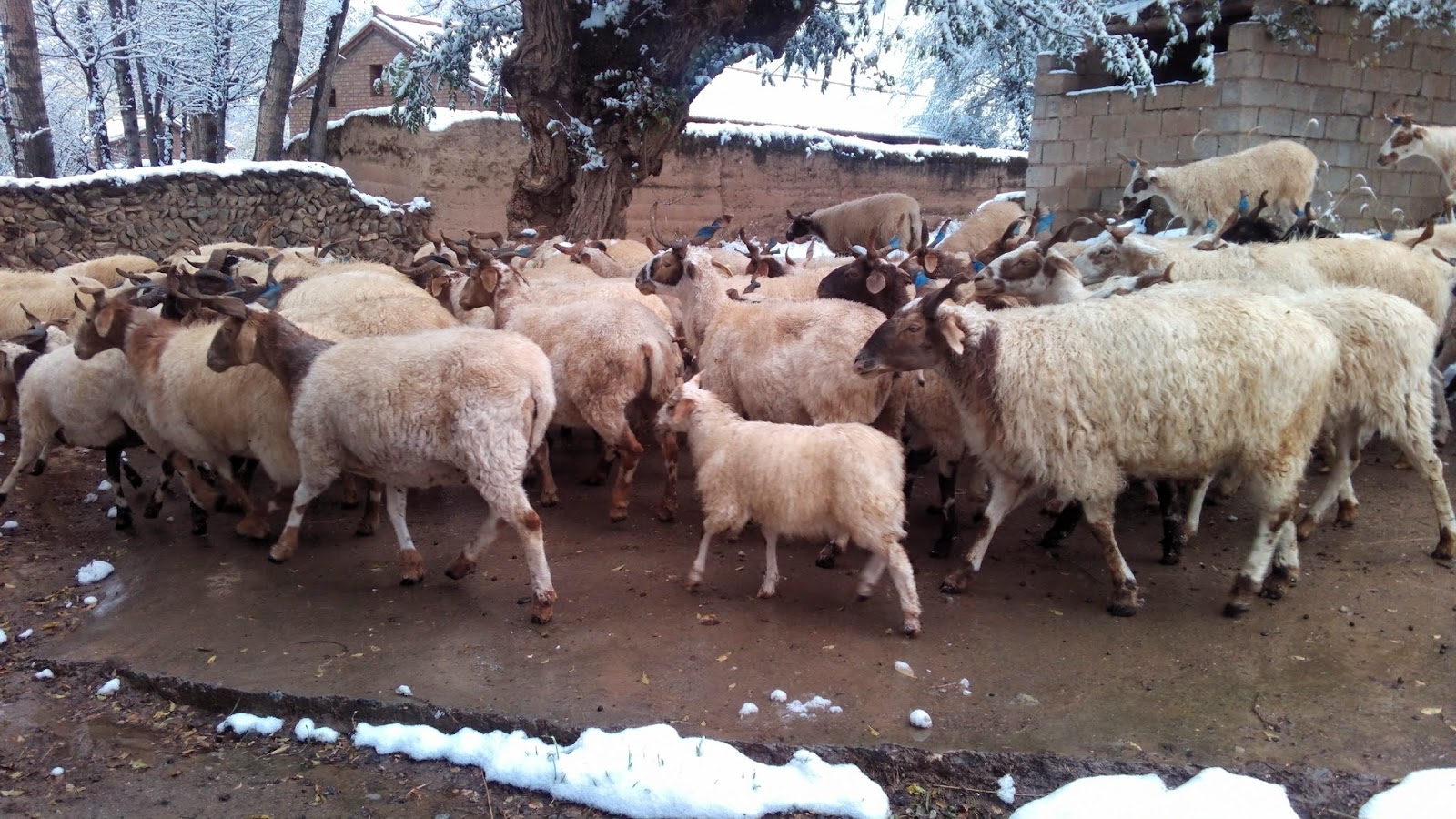 |
| View outside my homestay |
 |
Buddhist offering furnace |
 I arrived in Wendu yesterday evening with my study abroad group. First we went to the village school and played with the local children and then we went to meet our different host families. Two other girls and I arrived at a large, blue metal door and were welcomed by a middle-aged woman with her young grandson wrapped in a blanket, on her back. Although she was a young grandmother, her wrinkles showed the age that comes early due to daily backbreaking work. Her hair was long and black, parted in the middle and tied in two braids, and she was wearing the traditional Tibetan dress consisting of a long sleeve shirt under a thick long black overcoat that reached the ground. Like most other outfits I had seen, the right sleeve of her coat was slipped under the shoulder and tucked into a belt. The sleeves are so long, that when people are working, they only wear one sleeve. This forms a convenient pocket at their chest. Like this and this.
I arrived in Wendu yesterday evening with my study abroad group. First we went to the village school and played with the local children and then we went to meet our different host families. Two other girls and I arrived at a large, blue metal door and were welcomed by a middle-aged woman with her young grandson wrapped in a blanket, on her back. Although she was a young grandmother, her wrinkles showed the age that comes early due to daily backbreaking work. Her hair was long and black, parted in the middle and tied in two braids, and she was wearing the traditional Tibetan dress consisting of a long sleeve shirt under a thick long black overcoat that reached the ground. Like most other outfits I had seen, the right sleeve of her coat was slipped under the shoulder and tucked into a belt. The sleeves are so long, that when people are working, they only wear one sleeve. This forms a convenient pocket at their chest. Like this and this.Because my roommates and I only knew a few Tibetan words and our host mother did not speak a word of English or Chinese, our interactions felt awkward; we did not know how to communicate to her. She motioned us to sit down at a low table where we drank tea and ate homemade bread. She kept checking in on us and refilling our tea, without saying a word. When we had finished eating the bread she brought us heaping bowls of handmade noodles followed by plates of pickled vegetables. Although it was the simplest meal I had eaten on the trip, it was definitely my favorite; I am addicted to bread and this bread unlike the notoriously bland Chinese bread was delicious.
After dinner, at around 7 p.m. she motioned us to do our business in front of the house---- they have no toilet or shower just a hole---- and then to go to sleep. We slept on a large carpet-covered bed, or rather a large block of packed dirt in a wooden frame that took up a whole side of the room. It was not the most comfortable, but I was grateful for the heating pad she gave us. With no central heating the room can get dangerously cold.
 |
| Aoman in traditional Tibetan clothing |
 |
| A herd of sheep heading to the mountains |
I have just returned to Beijing, and I cannot stop thinking about Qinghai, a world so different than mine. I will never forget the colorful temples smelling of incense and yak butter, the monks chanting, and the homemade bread and fresh doughy noodles. What I especially loved about Qinghai was the friendliness and empathy of people that I met around the cities and villages; it was very refreshing.
No comments:
Post a Comment